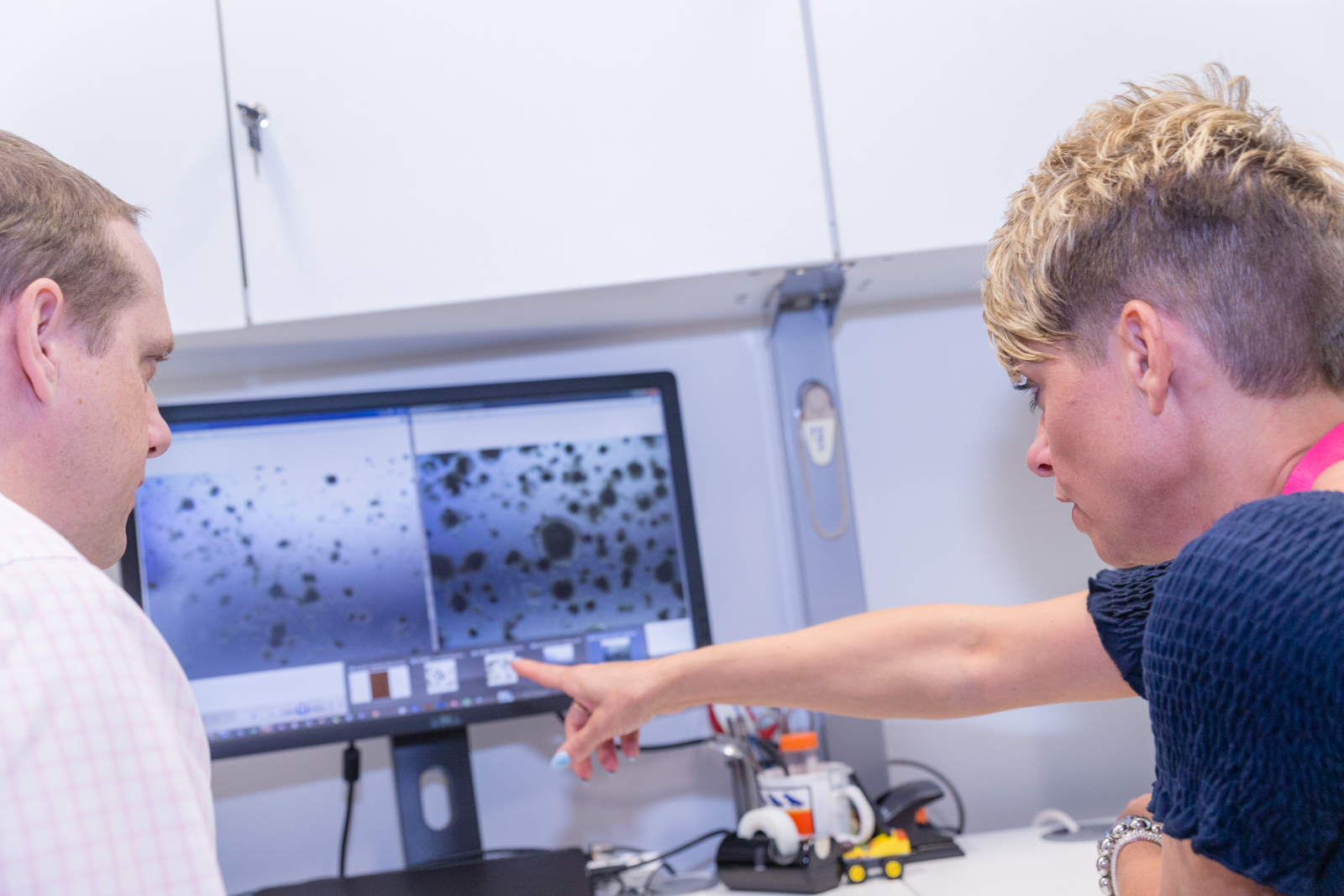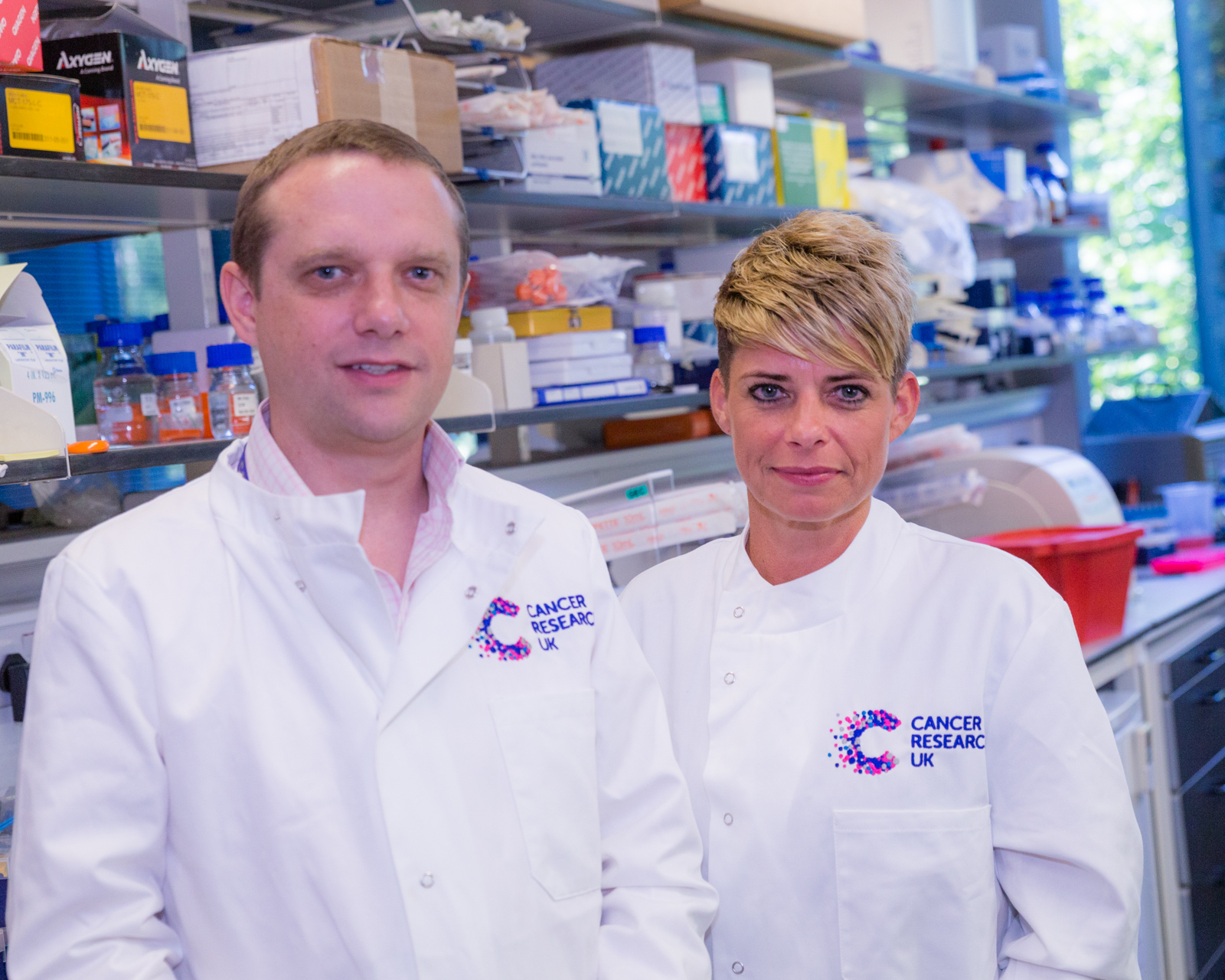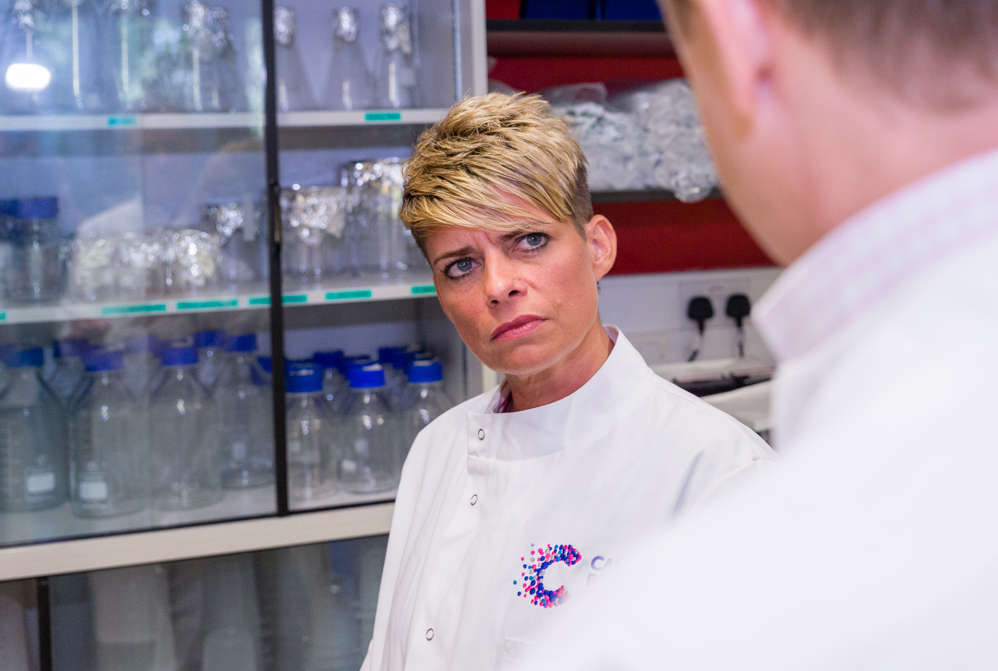
Terrie Waters knows all too well how important research is in helping people beat cancer – she and her sisters have an increased risk of getting bowel cancer and have regular screening and colonoscopies.
It’s an option that wasn’t available to Terrie’s mum - Diane Cox was diagnosed with bowel cancer 25 years ago and the diagnosis came too late. She fought the disease but it came back and spread through her body.
Diane died at the age of 52, Terrie was only 22 at the time and a new mum herself. It shaped Terrie’s life and made her determined to help others. She has fundraised for Cancer Research UK and other bowel cancer charities ever since.
Terrie, 42, tells her mum all about it whenever she visits her grave. This Sunday she’ll be telling the crowds at Cambridge Race for Life – Terrie will be speaking on stage about why research matters so much to her. To sign up and join Terrie, visit https://raceforlife.cancerresearchuk.org/
At 40, Terrie had her first colonoscopy, she will have one every five years. She goes to Addenbrooke’s for the procedure and had no idea that she was helping to fund one of the consultants in the team.
In Cambridge there are a number of Clinician Scientists working in the labs and with patients to beat cancer right now. They are funded by Cancer Research UK.
It means that fundraisers like Terrie are helping to make a difference now.
Terrie had no idea of this until she met Clinician Scientist, Dr Simon Buczacki, last week. Simon is based at Addenbrooke’s and is an Honorary Consultant Colorectal Surgeon but it’s Cancer Research UK that funds his post.
He treats bowel cancer patients at the hospital and works in the endoscopy screening clinic, where Terrie goes. Unlike many other consultants, he has another role - he works in the labs at the CRUK Cambridge Institute to find new treatments for bowel cancer.
Recently he discovered that a drug commonly used to treat toenail fungus could help to eliminate dormant cells within bowel tumours, these cells remain unresponsive to treatment and put the patient at risk of their cancer coming back.
Dr Buczacki showed Terrie where the research happens at the CRUK Cambridge Institute and explained how treatments have improved thanks to research.
Terrie said: “It was amazing, I’ve never seen anything like it before – from how the cancer works, to how they kill it and how they know if it’s coming back.
“I hadn’t thought that fundraising would be paying for someone like Simon to work at the hospital and here in the lab. It’s a big comfort. We thought when we lost mum that her medical team had been doing everything they could but now we’re over 20 years on and there are people like Simon who keep going, thanks to the fundraising, trying to find new cures.
“I always wanted to raise more money, now I’ve seen where the money goes I will carry on doing whatever I can.”
Cambridge is a research hub for Cancer Research UK, the charity has the purpose built CRUK Cambridge Institute on the Addenbrooke’s site and it has the CRUK Cambridge Centre.
The fundraising that comes from events like Race for Life, from the legacies left in wills and from endurance challenges, means the charity could invest over £54m in the city last year to allow scientists and doctors to work together to beat cancer sooner.
The money helps to support an army of health advisers, research nurses, research clinicians and scientists who work to find breakthroughs in the labs, to run clinical trials in the city, to improve early detection and to increase awareness of reducing risk.
Simon said: “On a personal level I find it very rewarding having both roles. If an experiment goes wrong then I can get back to clinic and help patients, they are the best inspiration you can have. On the other hand, if it’s a bad day at the hospital, if someone’s scan comes back and it’s terrible news, then I can get back into the lab and feel like I am making a difference.”
Other consultants in Cambridge also work in the lab and clinic – they aim to make breakthroughs in breast cancer, prostate cancer, in early detection and in hard to treat cancers like Glioblastoma.
Cancer Research UK funds a number of research nurses to work alongside them, they advise and support patients on clinical trials and collect and process blood and tissue samples for use in the labs.
It means that it is not just the medical teams who help patients, but physicists, chemists and astrophysicists from the university, as well as the research students and professors in the labs and the fundraisers who help to pay the bills – together they will beat cancer sooner.
Cancer Research UK is airing a series of powerful and emotive ‘Right Now’ TV ads that show how actions taken right now can make a real tangible difference in helping more people survive.
One in two people in the UK will be diagnosed with cancer at some stage in their lives, but the good news is more people are surviving the disease now than ever before. Survival has doubled in the last 40 years in the UK. But to help continue this progress, Cancer Research UK needs everyone to act right now.
There are so many ways to show your support. From signing up to take part in Sunday’s Race for Life at Jesus Green, donating items to one of our shops or giving time to volunteer. Every action makes a difference and money raised helps to support Cancer Research UK’s vital work.
To help support life-saving research, visit https://www.cancerresearchuk.org/
To sign up for Race for Life, visit https://raceforlife.cancerresearchuk.org/

















